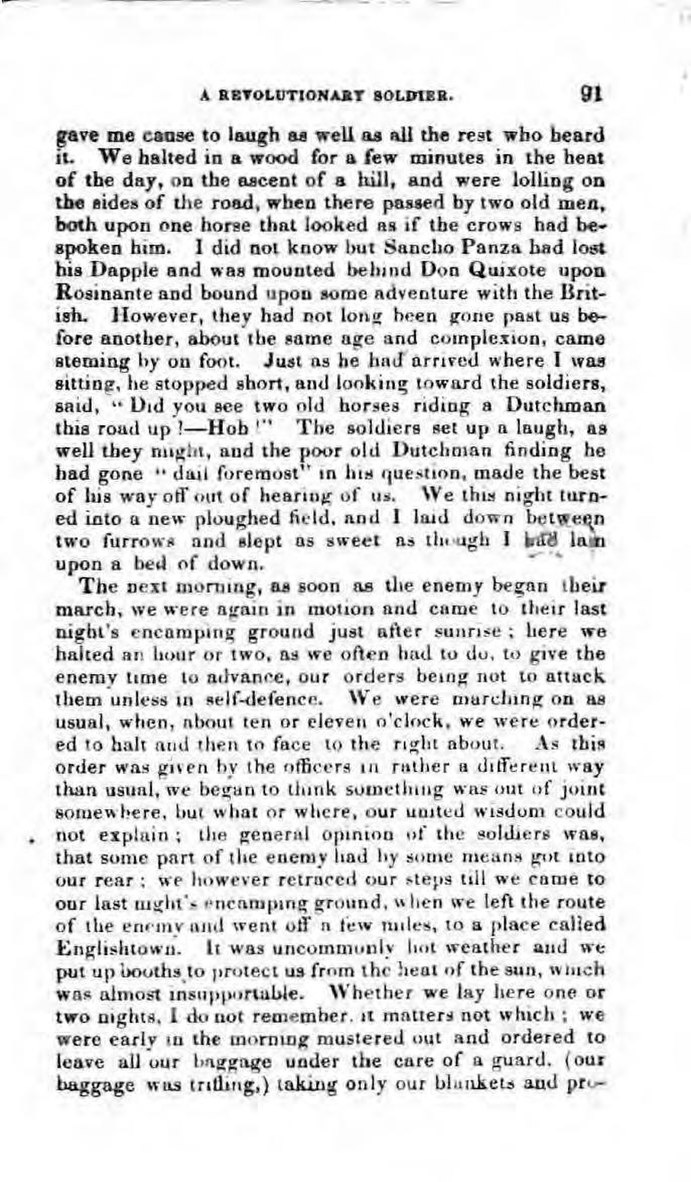gave me cause to laugh as well as all the rest who heard
it. We halted in a wood for a few minutes in the heat
of the day, on the ascent of a hill, and were lolling on
the sides of the road, when there passed by two old men,
both upon one horse that looked as if the crows had bespoken him. I did not know but Sancho Panza had lost
his Dapple and was mounted behind Don Quixote upon
Rosinante and bound upon some adventure with the British. However, they had not long been gone past us before another, about the same age and complexion, came steming by on foot. Just as he had arrived where I was sitting, he stopped short, and looking toward the soldiers, said, "Did you see two old horses riding a Dutchman this road up?—Hoh!" The soldiers set up a laugh, as well they might, and the poor old Dutchman finding he had gone "dail foremost" in his question, made the best of his way off out of hearing of us. We this night turned into a new ploughed field, and I laid down between two furrows and slept as sweet as though I had lain upon a bed of down.
The next morning, as soon as the enemy began their march, we were again in motion and came to their last night's encamping ground just after sunrise; here we halted an hour or two, as we often had to do, to give the enemy time to advance, our orders being not to attack them unless in self-defence. We were marching on as usual, when, about ten or eleven o'clock, we were ordered to halt and then to face to the right about. As this order was given by the officers in rather a different way than usual, we began to think something was out of joint somewhere, but what or where, our united wisdom could not explain; the general opinion of the soldiers was, that some part of the enemy had by some means got into our rear; we however retraced our steps till we came to our last night's encamping ground, when we left the route of the enemy and went off a few miles, to a place called Englishtown. It was uncommonly hot weather and we put up booths to protect us from the heat of the sun, which was almost insupportable. Whether we lay here one or two nights, I do not remember, it matters not which; we were early in the morning mustered out and ordered to leave all our baggage under the care of a guard, (our baggage was trifling,) taking only our blankets and pro-
